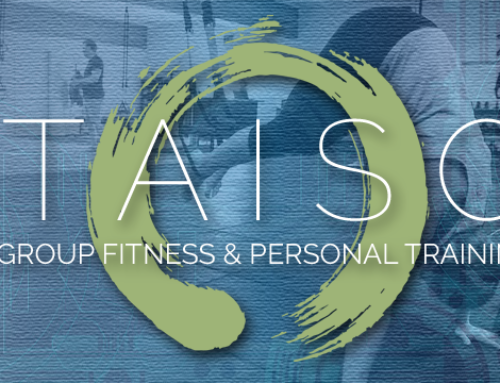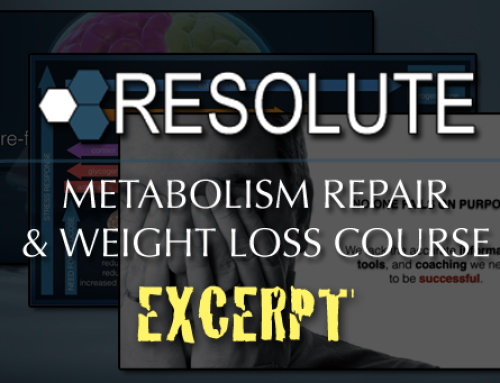The Challenge of Change
Change is hard. Period. If change were easy you would not even consider it. It would simply be all those things in your life that have slowly evolved over time. When I was a kid I liked to watch the show Magnum P.I. but somewhere along the way I moved on to The A Team, then whatever came next. Over time I watched less and less television and now the only video entertainment for me is all web-based. I have no idea what is even on mainstream television even more. Was this change?
Sure there were changes, but not a conscious decision to “change.” When we think of change we gain an intellectual understanding that we “should” “probably” do something different. When my television choices changed over the years it was not a purposeful change. I never said “I should watch something different.” The shows I watched naturally evolved based on availability and my interests. Occasionally, I meet someone who whose interests have naturally lead them to better health. But more often I meet people who say they “should” do more to feel healthy. And because I own Taiso Fitness and Nutrition, they seem almost ashamed when they say it, as if I were the health police.
If they think they should do more to be healthy, then why don’t they? Well, because an intellectual understanding only will never lead to lasting change. Our daily habits are driven by emotion not intellect. Let’s say you love potato chips. Your blood shows you have high cholesterol and your health adviser recommends not eating potato chips. You walk out of their office and see a vending machine in the hall. Do you buy your favorite chips? Probably not. Because your intellectual understanding was just reinforced and your concern is probably high.
Three hours later you go to lunch with some friends. You order a sandwich and when your meal arrives it has your favorite chips on the plate. Do you eat them? You probably will, we all probably would. Why? Three things are contributing to this decision. The first is that our habits are driven by emotion, not intellect. Whatever has made you choose those chips 1000 times in the past has not changed in the last three hours. Second, willpower is a finite resource. As we go through the day our willpower gets exhausted. Much of the coaching we provide clients deals with understanding this and making choices to reserve willpower for when we need it most. And third, imagined social pressure will push us to eat the chips. I say imagined because there are many ways to deal with the chips on our plate that will not result in our friends pushing the chips as if they were crack. But because of the intellectual importance we have placed on the chips we imaging them to be of interest to the people around us. Of course if you simply left them on your plate no one is likely to notice.
Dan Heath and Chip Heath have a great little book called Switch: How to Change Things When Change is Hard. In it they use an example of a rider on an elephant moving down a path. The rider is our intellect and uses his limited control (willpower) to steer the elephant. But as the rider tires, the elephant (our emotions) does what it wants. Unless of course the path (our environment) influences those choices. As effective as changing our environment is, for example not having those chips in the house, changing the environment requires even more changes.
When we try to make a single change we have an 80% chance of success. Two changes at once we have a 35% chance to succeed. Three or more and we have less than a 5% chance of success. So, is getting “healthy” one change – or hundreds? What about “diet” and exercise” is that two changes, or several hundred?
Stress and the Science of Hope
Stress comes from a variety of sources; fatigue, relationships, nutrition, misalignment, balance, vision, environment, gait, breathing patterns, travel, work, etc…. But stress has predictable, and therefore measurable effects on the body.
When people work out with us we teach them to interpret the effects of stress on the body and adjust their training program accordingly. We know after a couple reps if the exercise is appropriate for the client. We do not have to wait six weeks to see if the program worked, was ineffective, or caused injury.
But mental stress has the same effect on the body and is measurable. Additionally, understanding the effect of stress on change gives us a tool to approach change in a measurable scientific manner that leads to real long-term success.
As an example, lets look at dieting. People either restrict their calories, or the foods they eat, or more likely both. They create starvation, lose some weight and stop dieting. Do you think that created more or less stress? And what normally follows? Immediate weight gain, on average the amount lost plus ten percent. Why? Stress. So scientifically we can look at the whole cycle and see that dieting, and resultant stress most often leads to weight gain.
Twice a year we have an eight week program designed to manage stress, and institute change. We recently had a woman come in a few weeks before the Fall program began. She wanted to participate in the program and stated that she had previously tried “everything out there.” We know that almost any diet program will work for about 30% of the participants simply because they are now paying attention to what they eat. So the question becomes why has this person consistently not seen results? Was it all the programs, or the participant?
The program she wanted to sign up for includes four workouts a week, group classes, and individual problem solving sessions each week. It is a great program and gets great results. But was it the right program for her? We thought it might be too much change and therefore stressful, so we got her started with just the one-on-one problem solving sessions which turned out to be the right answer.
From a stress management point of view dieting and working out may not be the first step. For many people, learning to manage their stress is the right starting point. From there we can move on to dietary aspects and finally exercise.
Stress, Change and Nutrition Coaching
Understanding how enormous change is, the stress it causes, and why it is difficult to make change is the focus our Stress, Change, and Nutrition Coaching program. These are weekly half-hour coaching sessions that may be used in conjunction with our fitness programs or as a stand-alone service. Not everyone needs or wants to loose weight. We all need to move more, but a fitness program may not be the right answer for us right now. However, effectively dealing with stress may be the first step to overall health, and satisfaction.
Taiso Fitness and Nutrition
If you are looking for a unique gym experience try Taiso Fitness and Nutrition. We are Tacoma’s fitness and nutrition gym for people who want to get out of pain or improve performance, who need immediate, measurable results, and want to make educated decisions to take control of their health.
Ready to get out of pain or improve performance? Looking for a gym, personal trainer, or unique boot camp experience? Set up a complimentary consultation, or start a 21 Day Risk Free Trial. Stay up to date on the latest information through our website at www.taisofitness.com





